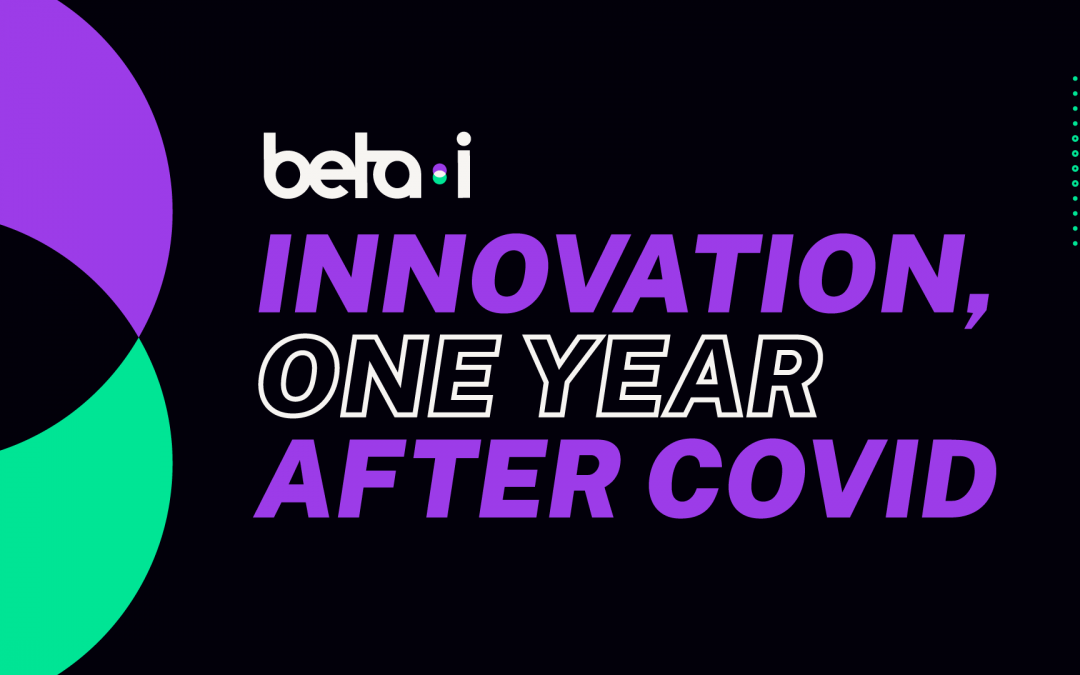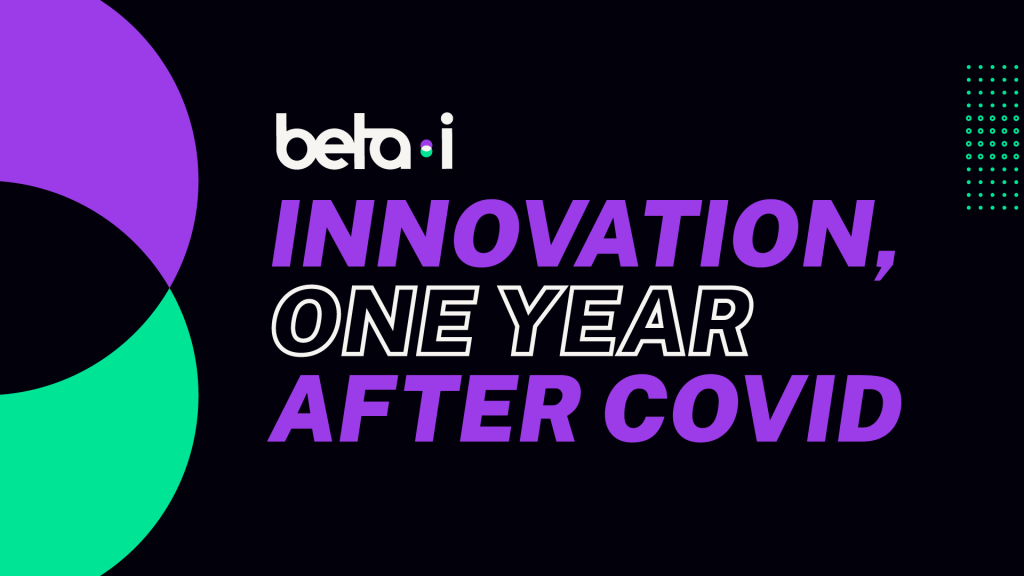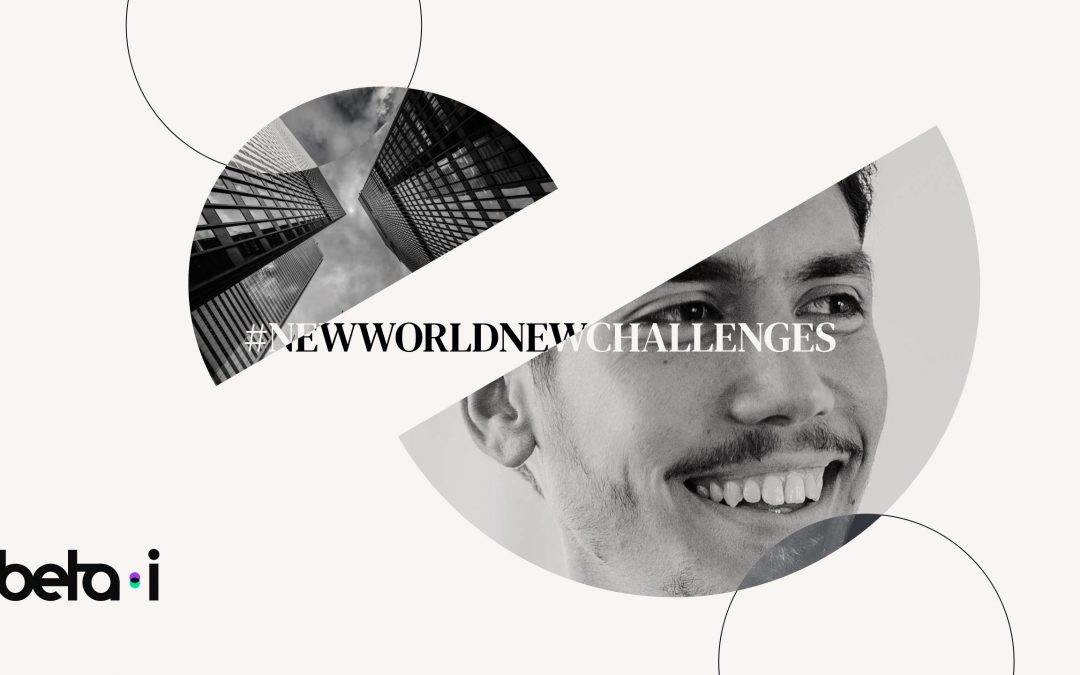
by cristina | Apr 19, 2021 | Corporates, Featured, Startups
Beta-i carried out an Ecosystem Survey to understand the evolution of the innovation market over the past 12 months among players in Portugal’s tech community.

The survey’s results show a growth in innovation and digital transformation projects during the pandemic.
One year after the beginning of the pandemic, these were the main takeaways:
- 71% of respondents say that the number of innovation projects developed between startups, companies, universities, and research centres has increased between March 2020 and March 2021;
- 50% show an increase in their number of innovation partners to find new solutions to the pandemic’s challenges;
- 47% of respondents give greater preference to seeking local partners rather than entities outside of Portugal;
- Collaboration has also gained new strength, with over 70% of the community upholding the growth of this belief;
- Innovation and digital transformation as agents of change increased 47%;
- 52% of the respondents’ optimism about the future remains similar to the pre-pandemic period, being a more skeptical or pragmatic stance based on issues that go beyond the pandemic context – such as diversifying innovation funding models and reducing bureaucracy and public procurement rules;
- At Beta-i, we also saw our number of projects increase compared between March 2020 (15) and March 2021 (22 projects) and a 22% revenue growth in the first quarter of 2021 compared to 2020.
Alisson Avila, our co-founder and Communication and Knowledge Expert, explained that “the survey was conducted with people who work with innovation and digital transformation, during a year where this was paramount. A year later, this 12 month survey was undoubtedly crucial for the ecosystem to understand the way it deals with uncertain environments and, above all, rethink the way it approaches innovation.”
“However, we must understand the context of the data before assuming a positive correlation. The results show a solid upcoming scenario at a digital level; nevertheless, it may not represent higher revenue generation. It will be essential to align this through 2021, to confirm the trend that collaboration for innovation is a culture and process for generating results in the market,” adds Alisson.
The survey had the participation of 54 players from the technology community, including founders of startups, leaders, large companies’ executives, researchers, and investors, mostly of Portuguese nationality. The answers were collected between February and March, 2021.

by Alisson Avila | Apr 29, 2020 | Corporates, Featured, Startups

New world, new challenges: Kicking off with this post, we’ll be sharing during the next days and weeks some Questions & Answers in a chat with Beta-i’s CEO, Pedro Rocha Vieira. You’ll get to know more about the big picture of what’s happening at Beta-i right now. A new moment, a 10-years retrospective, our new brand, future scenarios, our startup support and our global reach.
But let’s start by talking with Pedro about this very moment: the breaking news 🙂
Pedro, what’s changing at Beta-i and what’s happening under this repositioning and restructuring
Well, after 10 years of hard work in different areas, we managed to fulfil this first-decade mission: we were, and we proudly are a key player in the establishment of an innovation ecosystem in Portugal. We contributed to the mindset transformation process which has been happening in the Portuguese ecosystem over time, and we managed to be recognized as one of the leading startup accelerators in Europe.
However, now we are no longer in the phase of feeding this innovation ecosystem at its base, but rather helping to give it greater strength within the economy as a whole. Lean approaches, new in-company processes and especially, the collaboration between corporates, public services or other institutions with startups is an inescapable movement.
That’s why we’re undergoing this cycle of change, in order to continue to be relevant at a different level. In the last 3 years, we started to work to become a different type of consultancy firm, totally focused on bringing the startup way of working and making business growth to large organizations and vice-versa, as well as deploying our ecosystem building experience on different geographies. We now have clients and projects in almost 20 countries, on 5 continents. This is a matter of fact, not a vision – but to be very honest, this was still not exactly understood by the market. That’s why we are leveraging our approach.
Therefore we reorganized and redefined our areas, focusing essentially on the collaborative innovation territory. We have a team of experts and different frameworks to converge global startups, large companies, universities, researchers, investors, mentors and governments competencies to work on innovation programs and develop pilot projects with impact on the economy.
How important is this new positioning in the current context?
We were born in times of crisis and now we are “reborn” again in a new period of crisis – and this evolution was made at the right time to respond to current needs.
If 10 years ago we contributed to the generation of new ideas and entrepreneurship approaches to stimulate the economy, today the challenges are different. It is necessary to connect the old with the new economy in a logic of collaboration and win-win – from facing up and coming competitors as a target to be crushed, to see them as a potential partner. This is a paradigmatic shift. It is necessary to support startups as an economic agent of change, helping them to collaborate with companies. And put companies to collaborate with other companies, too – it’s mandatory to be aware that only together we can build this new future. And we’re all experiencing that, at this very moment, due to the pandemic.
So this Beta-i repositioning ends up giving us the necessary approach to face the current challenges and promoting collaborative innovation where everyone benefits, which naturally also includes the people impacted by the developed solutions.
(to be continued…)




